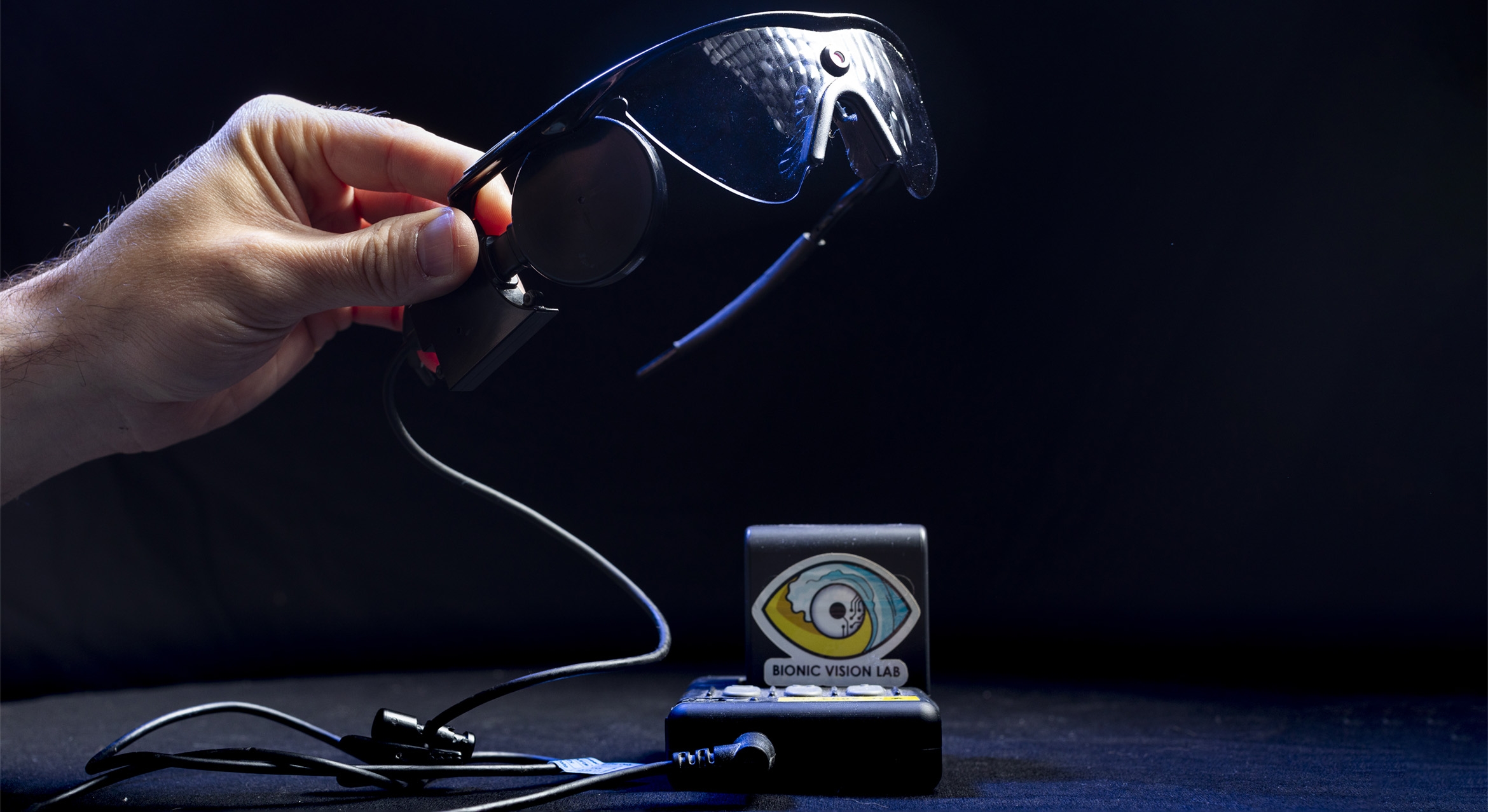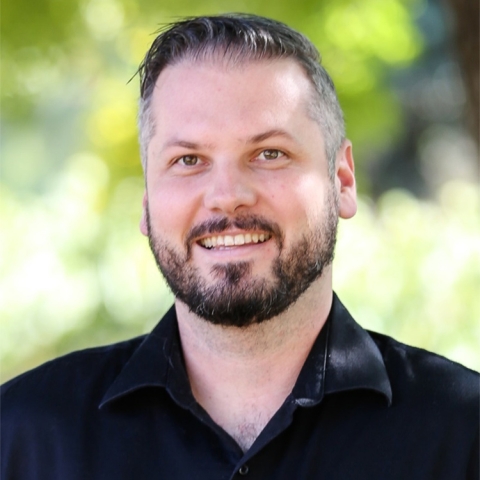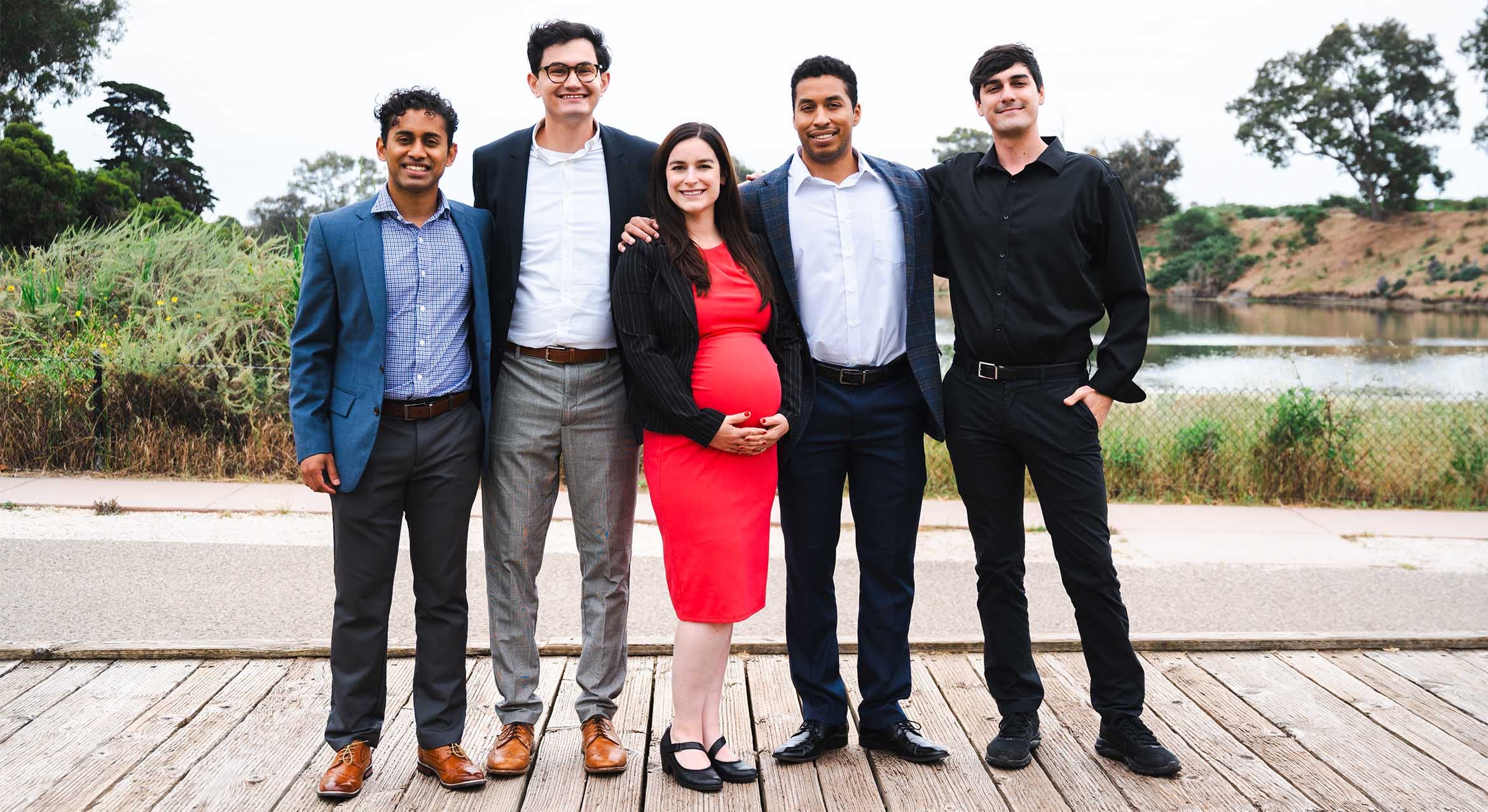
Seeing the future: Michael Beyeler’s work in neurotechnology earns him top faculty award
Michael Beyeler’s work sits at the intersection of neuroscience, computer science, engineering and psychology, where he is advancing sight-recovery technologies — including retinal and cortical implants often dubbed “bionic eyes.” As the leader of UC Santa Barbara’s Bionic Vision Lab, Beyeler and his team are not only enhancing artificial vision systems but also deepening the theoretical understanding of how the brain processes visual information. Their research holds promise for improving the quality of life for individuals with visual impairments, bridging the gap between science and transformative technology.
In recognition of his innovative contributions to research, teaching and service, Beyeler, an assistant professor of computer science and of psychological and brain sciences, has been named the recipient of the 2024-25 Harold J. Plous Memorial Award, one of UCSB’s highest faculty honors.
“Receiving the Plous Award is a tremendous honor that reinforces my commitment to UCSB’s values of innovation, collaboration and societal impact,” said Beyeler, who joined the faculty in 2019. “Personally, it’s humbling to be recognized by a community of peers whom I deeply respect. Professionally, it’s validation of the interdisciplinary work my team and I are doing at the frontier of vision science and neurotechnology, reminding me of the significance of our work.”
Among his group’s most notable contributions are computer models that predict how users of visual prostheses perceive their surroundings, helping to set realistic expectations and refine implant designs. Beyeler’s research, recently supported by a National Institutes of Health (NIH) New Innovator Award, has been pivotal in enhancing the spatial resolution of current retinal implants, providing critical insights into improving these technologies. His research group’s work with intracortical recordings from the visual cortex of a blind individual revealed that actual vision differed from textbook descriptions. They have also designed and enhanced a virtual-reality (VR) simulator to support various implants and computer-vision techniques, aiming to guide next-generation devices while closely collaborating with implant developers.
“By using VR simulations to replicate the embodied experience, including specific head and body movements required due to limited fields of view, we can improve these technologies before they reach patients,” said Beyeler. “Translating theoretical ideas from my lab into real-world applications that enhance people’s lives is the most rewarding aspect of my work.”
Focusing on user experience, his group recently published a study highlighting a gap between what researchers expect and how often people actually use their devices. Beyeler and his team used their findings to advocate for better alignment of technology with user needs and outlined what the next generation of implants should address.
The award committee also lauded Beyeler for his innovative and adaptive teaching methods. In a memo announcing his selection, committee members wrote, “His ability to simplify complex concepts and his genuine concern for student success have earned him widespread praise from his students, who frequently highlight his effectiveness and flexibility in the classroom.”
“My teaching philosophy emphasizes continuously refining my courses to better serve a diverse student body, including students who are blind or hard of hearing, or face mental health challenges,” said Beyeler, who embraces iterative course design and has introduced dual-learning tracks in a class to cater to different learning needs. “I try to make thoughtful adjustments that significantly enhance the education experience. I believe that accessibility goes beyond accommodations; it’s about actively listening and adapting to empower every student to succeed.”
The committee also commended Beyeler for his extraordinary commitment to service at UCSB. He has served on a wide range of university committees and helped organize campus-wide workshops, including the highly successful UCSB Data Science Summit and the Mind & Machine Intelligence Summit. He also launched the Ph.D. Application Support Program to demystify the application process for underrepresented and first-generation students. The program has supported a total of nearly 100 applicants in its first two years.
“These programs are important to me because I’ve seen how diversity enriches our research and learning experiences,” said Beyeler, who earned his Ph.D. in computer science from UC Irvine and completed a postdoctoral fellowship at the University of Washington. “Working with students from underrepresented backgrounds, first-generation students and those with disabilities brings in invaluable perspectives that enhance our work in meaningful ways. The impact of these efforts is reflected in the achievements of my mentees; they've presented at national conferences, received prestigious awards and advanced to top graduate programs or successful careers. Seeing their growth reaffirms the value of fostering an environment where every student feels supported and empowered to contribute their unique insights.”
Leadership in the College of Engineering and in the Division of Mathematical, Life, and Physical Sciences (MLPS) commended Beyeler on the well-deserved recognition from the campus community.
“We are extremely proud that a faculty member from the College of Engineering has received this prestigious award from his peers,” said Umesh Mishra, dean of engineering. “Michael is a prime example of a scholar who is committed to making the greatest social impact by pursuing novel interdisciplinary research and creating pathways to make STEM disciplines accessible to as many people as possible.”
“Dr. Beyeler’s groundbreaking research, commitment to interdisciplinary collaboration, teaching and mentoring excellence and selfless service make him a perfect UCSB Plous Award winner,” noted Shelly Gable, interim dean of MLPS. “His research, service and training efforts that all coalesce around making a positive impact on society exemplify the spirit of excellence and innovation within the academic community that is captured by the Plous Award. MLPS is delighted to count him as one of our esteemed faculty members.”
The university will officially recognize Beyeler during a ceremony in the spring, during which he will give a plenary lecture, focusing on the user-experience aspect of sight restoration technologies and highlighting how implants are often developed based on sighted researchers’ expectations rather than the actual needs of blind users.
“It's remarkable that there are hardly any blind researchers in this field! The only one we’re aware of is right here at UCSB: our Ph.D. student Lucas Nadolskis, which speaks to the disconnect between researchers and end-users that must be addressed,” said Beyeler. “My talk will emphasize this human side and connect it to the theoretical models we've developed and the behavioral studies we've conducted.”




